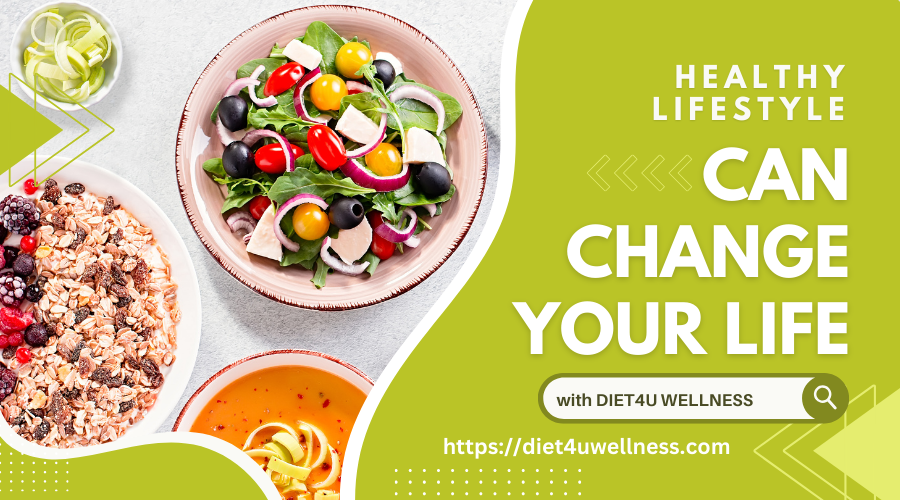
Oatmeal’s impact on weight loss is dependent upon a variety of circumstances, including a person’s total diet plan and lifestyle, thus there is no universally applicable response to this query.
However, some evidence indicates that oats may aid in weight loss by boosting satiety (a feeling of fullness and pleasure) and lowering calorie consumption. Additionally, oatmeals is a nutrient-dense cereal that can offer additional health advantages, like reducing blood cholesterol levels.
The body loses weight when it burns additional calories than it takes in. Therefore, everything that aids in boosting calorie expenditure or decreasing calorie intake may aid in promoting weight loss.
With a few different methods, oat meals may aid with weight loss plans
Oatmeals is an entire grain that includes soluble fiber. This kind of fiber breaks down in water to generate a substance similar to gel that helps slow down metabolism and keep you feeling content longer. Soluble fiber has also been demonstrated to assist in lowering blood sugar and LDL (bad) cholesterol levels. Second, oatmeals has a few calories yet nevertheless makes you feel full. Both of these elements can aid in weight loss while also ensuring that you feel satisfied and full.
Oatmeals may therefore be a useful addition to the weight reduction journey when included in a balanced diet and way of life, even though there is not a one size fits all approach.
Weight Loss with an Oatmeal explained by Dt. Rukhsana Azhar from Diet4u Wellness
The oatmeal diet comes in many varieties, and various people adhere to it for varying lengths of time. There is one that is more restrictive and calls for only eating oatmeal for each of the three meals each day, with a daily caloric intake of 1,300 calories.
The number of meals each day is then decreased to just two. In another, two of the day’s meals are made up of oatmeals, while the evening meal includes a lean protein, such as chicken or fish, coupled with a salad or vegetables that have been cooked.
The second form is better nutritionally since it gives you more micronutrients, including important minerals and vitamins. The meals’ components can be altered to your liking as long as the calorie count stays the same.
Facts
For the initial days of this seven-day diet, people only eat oatmeals for their three daily meals. The following two days, they eat oatmeals for at least two of their meals. Finally, for the following three days, dieters only eat oat meals for one meal. This diet is more calorie-efficient and comprises three phases. The calorie progression is as follows: 100–1200 calories for the first two days, 1200–1400 calories for the following two days, and 140–2000 calories for the final three days. Oats are effective because they give the body fiber, which is excellent for digestion.
Furthermore, oat fiber has the ability to bind to fat in the colon, inhibiting fat absorption.
Advantages
A suitable source of carbohydrates for persons with special dietary needs (such as those who have celiac disease), oats are also naturally gluten-free, according to Hultin. (The Celiac Disease Foundation cautions that certain oats may still contain remnants of gluten, so always check the label before purchasing.)
The kind of oats you consume is a further consideration. Choose steel-cut, outdated, or rolled oats rather than instant or rapid oats to reap the greatest health advantages. According to Harvard University’s T.H. Chan School of Health Sciences, steel-cut oats have the lowest glycemic index despite having roughly the same quantity of fibre as the other options. As a result, the human body will process them more gradually, assisting in the stabilization of your glucose level and energy levels.
- Oats may reduce a child’s risk of having asthma, according to research, which has found that giving them to newborns before they turn 6 months old may reduce that risk.
- Relief from constipation: Oat bran, the grain’s outer, fiber-rich covering, has been found in studies to benefit older people with constipation.
- Several skin care products include a substance called colloidal oatmeal, which is made of finely ground oats, suggesting that oats may be helpful for skin care. Although colloidal oatmeal has been FDA-approved since 2003 for skin protection, oats have long been used to treat skin issues. It has been demonstrated that skin care products containing oats can reduce the itch and irritation brought on by skin conditions like eczema.
- A nature free of gluten: Oats are inherently gluten-free, but always be sure the oats you buy were produced in a facility that did not also produce whole wheat or other goods that contain gluten. Carefully read the labels.
- Possibly extends your life: Oatmeals may promote longevity, according to some research. The fact that oats can reduce your risk of developing heart disease, autoimmune illness, and weight gain is proof of this.
- As an excellent source of fibre and protein, oats can help you feel fuller for longer, which may help you maintain a healthy weight. This may aid in weight loss or maintenance.
- A simple way to get healthy food: Around 150 calories, four grammes of fibre, and six grammes of protein are provided by one cup of heated oatmeals. Thiamine, phosphorus, zinc, magnesium, manganese, selenium, and ferrous are just a few of the essential vitamins and minerals it contains.
- Protection from coronary cardiac disease and high blood pressure: Oatmeal contains anti-oxidants called avenanthramides which may offer protection from these conditions. The immune system is strengthened by antioxidants to fend against infections.
- Lower blood sugar and cholesterol levels: Both insoluble and soluble fibre is abundant in oats.
- Soluble fibre lowers cholesterol and maintains healthy blood sugar levels. The insoluble fibre prevents constipation by causing waste to pass through the colon. In order to preserve gut health, the fibre content encourages the development of “good bacterial colonies.” These colonies assist in controlling immunity.
Oatmeal and good digestion
Even though that packet of oats may seem perfect for a quick morning meal, it may not be the best choice for your health. The type of oats you consume can have a big impact on the pros and disadvantages of eating them.
It’s crucial to select oats with less processing if you’re consuming them for digestive problems and overall health. Longer digestion time, more stable blood sugar levels, and more obvious health advantages will all result.
Each time you consume a meal consisting of oats, your body receives fibre, which can aid in keeping your colon and intestines functioning properly. And that’s fantastic since you want to ensure certain that the colon is moving along.
You desire to be in the best possible health. then get to know your intuition while learning how to take care of it.
Oats good for guts
Almost each and every system and part of our body can be affected by the condition of our gut and the bacteria that live there.
The fact that 80% of our immunological tissue is located within and adjacent to the gut wall is one of the first ways we understand how the gut and immune system are intertwined. Allergies and autoimmune diseases, which are symptoms of an unbalanced immune system, are thought to be influenced by poor gut health.
The gut-brain link has also been the subject of extensive study. The gut and the brain are intimately connected by a nerve known as the vagus nervous system, and in addition to the gut influencing the brain (like getting butterflies in your stomach when you’re frightened), it’s also believed that signals from the belly to the brain can alter our moods and conduct. Several illnesses, including autism, brain fog, depression, anxiety, and brain fog, may have a connection to gut health issues.
There is also a recognized link between the intestines and the skin. The immune system’s reaction and inflammatory processes, which can begin in the gut, are involved in unpleasant skin disorders including eczema and even acne. Additionally, researchers are increasingly mentioning connections between the gut and the heart and the eyes, among other things.
This gut-to-everything relationship makes sense without requiring any thought on our part. The majority of the nutrients and waste products that our body requires for good health (all but oxygen) are absorbed by and eliminated from our stomach. Therefore, if it’s not functioning properly, we’re in danger!
Feed your gut bacteria according to your weight loss plan
Oats include some fermentable fiber, which allows the good microbes in your gut to ‘feed’ on it.
This offers two advantages. First of all, it promotes the growth of those beneficial bacteria, which crowds out the undesirable ones, improves food digestion and nutrient absorption, and promotes regular bowel movements.
Second, microorganisms that digest these fibers create butyrate and other short-chain fatty acids. The large intestine’s lining cells use butyrate as an energy source, therefore it essentially supports the integrity of the gut wall. Additionally, it has been discovered to enhance the gut wall’s ‘barrier’ function, or its capacity to prevent dangerous compounds from traveling from the gut and entering the bloodstream.

Hello My Name is Dt. Ruksana Azhar and I am a certified dietician and providing online & offline services for Weight Management, PCOS/PCOD Management, Diabetes Management , etc. I have 12+ years of experience in the Apollo Hospital Delhi , Max Super Specialty Hospital Delhi, Lilavati Hospital Mumbai and VLCC healthcare Mumbai. I loves to write healthcare and lifestyle related blog. My favorite part of being a doctor is the opportunity to directly improve the health and wellbeing of my patients and to develop professional and personal relationships with them.



